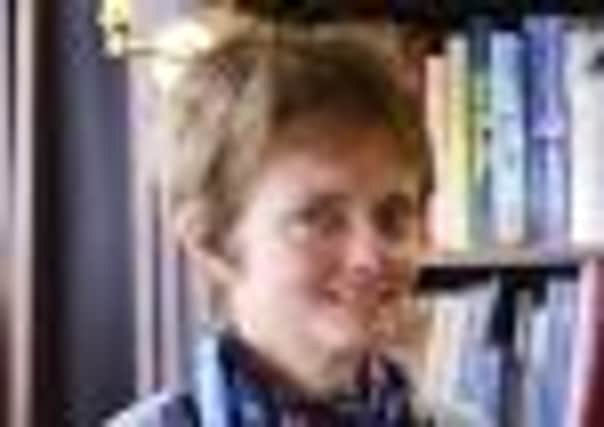Interview - Julia Deakin: Poet who won the literary lottery ticket


Julia Deakin says there is a secret to winning poetry competitions – “absolute luck”.
“It’s a lottery to some extent, the only thing is, it’s a lottery for which you design your own ticket,” says Deakin.
Advertisement
Hide AdAdvertisement
Hide AdIf that’s the case, then she’s clearly designed some very lucky lottery tickets in the last year.
Not only was the poet crowned the winner of the Yorkshire Open Poetry Competition this year, but a month later she was also walking away with first prize for the Torriano Poetry Competition.
“I haven’t won a prize for 10 years and I probably won’t win one for another 10. But it is nice to have this kind of recognition,” says Deakin, who moved to Yorkshire 30 years ago to attend York University – and never left.
In 1999 she enrolled on an MA at the University of Huddersfield and has since gone on to become a part-time lecturer at the University of Bradford and in copywriting at the University of Huddersfield.
Advertisement
Hide AdAdvertisement
Hide AdShe entered this year’s Yorkshire Open Poetry Competition, sponsored by the Yorkshire Post, with her poem Personal Effects, inspired by a trip to Haddon Hall.
“I was just there for a day out, enjoying the usual things and I sensed that there was a poem there. I went back with a book to take notes and kept my fingers crossed. I had paid £8.99 to get into the hall and I was determined having spent the money to get a poem out of the place,” laughs Deakin.
It was worth it.
Michael Symmons Roberts, the judge of this year’s competition, praised Deakin’s winning entry, saying: “My final shortlist was made up of poems that wouldn’t leave me alone. Most of them had caught my eye at the beginning and had grown stronger with each subsequent reading.”
Personal effects
Haddon Hall, Derbyshire
What haunts after all is not the brass neck of the place
but in a side room, underlit, flung out from the hub,
spirited through cracks between floorboards and flags
to lie cached like exhibits for some overdue case:
the lost keys and coins, washing tallies, playing cards;
a three-inch Christ crucified, minus its cross.
Lodged behind panels near the great fireplace,
the portrait of a young lady holding a small dog.
A bottle by the staircase up to Roger Manners’ room;
a buckle, a hat ornament, a faceted glass stem.
A Papal lead bulla found while cutting a trench;
a horn book; portions of a stringed instrument.
A candle snuffer, letter seals, a child’s leather shoe;
an Edward VI shilling wedged beneath a chapel pew;
a turned dolls’ house table leg; nail scissors, pins;
two ivory nozzles of a vaginal syringe.
And out from behind these the tired skin and bone
of the last hands to touch them before letting go –
the apprentice, the pot boy, the pale governess,
the world-weary valet, the tense paying guest.
From the guts of the whale that swallowed them whole
through the racetrack of sculleries, backstairs and halls,
past the cold chapel frescoes of monochrome flowers
sucking up to the window like dutiful souls,
down the rose-studded gardens and sinuous drive
hear their calloused feet thunder, their anthem gain pace
as reclaiming the shreds of their shadowy lives
they stride with their visitors out of the gate.
– Julia Deakin